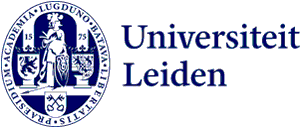
Four researchers of FSW receive an ERC starting grant
The Starting Grant is awarded annually by the European Research Council (ERC). This year, 51 researchers in the Netherlands will receive a Starting Grant, including 4 researchers from FSW.

Countering Jihadi Insurgencies in Africa: Repress, Resist & Reorder
Corinna Jentzsch
The violence of armed jihadist groups threatens social, political and economic progress in many African countries, with global consequences. While much research focuses on international responses to this violence, international actors must consider the local context in which they operate.
Corinna Jentzsch from the Institute of Political Science at Leiden University will investigate in depth when, how and why domestic actors try to combat jihadi insurgencies. This is crucial because domestic and international actors must work together to leverage local knowledge and prevent further escalation of these conflicts in Africa.
Read more about the research of Corinna Jentzsch.

Outdoor diversity: ethno-racial inequalities and outdoor recreation in Europe
Jasmijn Rana
In Europe, people from minority communities often participate less in outdoor activities such as hiking and camping. However, identity-oriented groups are beginning to claim their place in these spaces and reject the idea that they do not belong in the outdoors. With an ERC grant, anthropologist Jasmijn Rana will investigate how these movements address the lack of diversity and how ethno-racial inequalities are experienced and combated in rural Europe.
Read more about the research of Jasmijn Rana.

Misinformation among young people
Ili Ma
Making teenagers resilient to the sometimes serious consequences of misinformation is the goal of Ili Ma's (developmental psychologist) research. Thanks to the Starting Grant, she can set up a research program that focuses on the susceptibility of young people to mis- and disinformation. The project is particularly topical and urgent, given the role of incorrect information in major social problems such as polarization.
Although teenagers are growing up in a digital world where misinformation is increasingly prevalent, they have received little attention in such research until now. The ERC grant also offers the opportunity for intensive collaboration with young people, parents, schools, and professionals such as digital community police officers and experts in counter-terrorism. Their insights are essential to make the research relevant and directly applicable to society.
Read more about the research of Ili Ma

Climate Citizenship: Infrastructure, Environments and Democracy in the Age of Climate Change
Andrew Littlejohn
“Climate citizenship” explores how adapting environments to climate change can change the way people interact with each other and with government. This concept focuses on nature-based or 'green' climate projects that use natural elements and processes. With support from an ERC grant, anthropologist Andrew Littlejohn will investigate how ideas about citizenship are challenged, shaped and reformed as local environments adapt to the impacts of global climate change.
Read more about the research of Andrew Littlejohn
About the ERC
The European Research Council (ERC), established by the European Union in 2007, is the main European funding organization for excellent groundbreaking research. It supports creative researchers, regardless of nationality or age, to carry out projects across Europe.
The ERC offers four core grants: Starting Grants, Consolidator Grants, Advanced Grants and Synergy Grants. In addition, the additional Proof of Concept Grant scheme will help beneficiaries bridge the gap between their groundbreaking research and the early stages of commercialization. The ERC is led by the Scientific Council, an independent governing body. The ERC's total budget amounts to more than €16 billion for the period 2021-2027, as part of the Horizon Europe programme, which falls under the responsibility of European Commissioner for Innovation, Research, Culture, Education and Youth, Iliana Ivanova.
